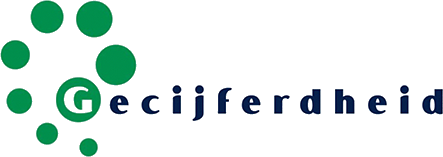Fill in tax forms, pay at the checkout, rent, buy, save, budget, use of medicines, jobs in and outside the home, understand offers and quotations, understand chance and statistics, understand headlines, VAT issues. It is too much to mention what a modern citizen encounters on a daily basis in so-called numeracy situations. Mostly unconsciously and sometimes consciously, not always to get something done immediately, and smetimes of vital personal importance to make a good decision in a numeracy situation, for example in large purchases.
Can anyone who has learned a bit of arithmetic at primary school cope with this? The answer is no. According to the latest results of the triennial PIAAC study, there are about 1,500,000 low-numerate individuals in the Netherlands (from 176 million inhabitants). And they did not made a mistake in the number of zeros or anything like that). These are individuals who, in numeracy situations, lack the knowledge and skills to deal adequately with these situations. Or individuals who, through negative school experiences, avoid everything which has to do with arithmetic, mathematics, and numeracy. Who does recognize the picture where in TV quizzes some participants very regularly shut down completely when they are asked to do something with numbers. These negative connotations that many people have with arithmetic and numeracy should not be underestimated.
What can we do about it? First of all, it will have to be acknowledged that we are dealing with a serious problem that prevents large groups of people from using their full potential. Think of the entrepreneur who gets stuck in his taxes, the talented gardener who can’t make a good plan and a good offer and so on. This is what we call working on awareness.
After that, programmes and good teaching materials will have to be developed to reach and support as many low-digit people as possible. Fortunately, there is already a slowly growing focus on this. See for example the booklet The importance of arithmetic and numeracy in lifelong learning (in Dutch). There will also be more adult material available to work with low grades. Digitally, for example, with ffRekenen.nl and on paper with the first books on arithmetic and numeracy from the Succes! series of the Reading & Writing Foundation.
But much more attention and development is needed. In the plans of the Dutch Ministries in the year 2019, available budgets for numeracy are quite low. It could make sense to assign 25% of the total budgert to fight low-numeracy. I think a request for a quarter is quite modest: you can’t sit in the front row for a dime.
This column was previously published on the website of Steunpunt Basisvaardigheden
